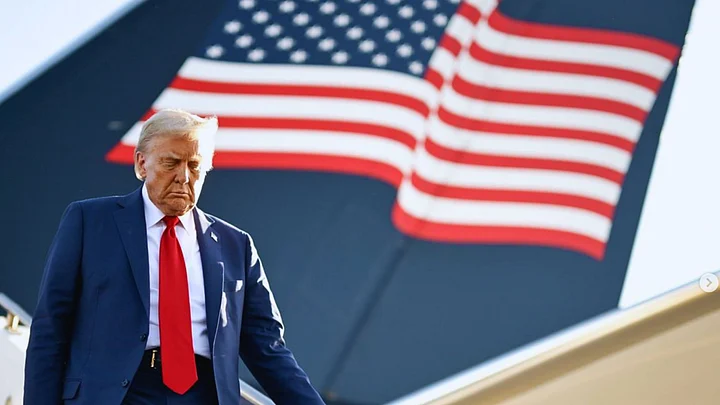Within days of his sweeping electoral victory, President-elect Donald Trump is putting together his Cabinet. His choices for these key positions can provide some important clues about his policy priorities at home and abroad.
Thus far, the bulk of his nominations have to do with the foreign and security policy arenas, with one or two important exceptions. Brief discussions of the prior backgrounds of these individuals can provide plausible inferences about their likely policy orientations if they receive the Senate's confirmation and assume office.
Three of the most important nominations that he has made, and which could have significant ramifications for the United States' foreign and security policies, include those of the secretaries of state and defence and the director of the Central Intelligence Agency (CIA).
For Secretary of State, he has nominated Marco Rubio, the senior Senator from Trump’s new home state, Florida. Rubio, it may be recalled, unsuccessfully ran against Trump in the 2016 presidential primaries. He had also made some rather derogatory personal remarks about Trump during the Republican primary debates.
The two, however, have obviously set aside those differences, and Rubio has demonstrated his fealty to Trump in the Senate. Rubio, who voted against a substantial aid package to Ukraine, is no doubt in accord with Trump about the necessity of winding up the war, even if it means inducing Ukraine to make territorial concessions to Russia. Apart from his softness on Russia, he is also likely to have a pro-India stance, given his prior views.
Trump’s nominee for Secretary of Defence, Peter Hegseth, a former Fox News host, reflects his idiosyncratic preferences. Hegseth had previously served in the military. However, beyond that, he has no government experience and will be expected to preside over a vast military apparatus that has 1.3 million men and women under arms. Hegseth, as a news host, had made clear his strong views about his non-interventionist preferences and that he was in accord with Trump’s “America First” outlook.
The nominee for National Security Adviser, which does not require the Senate's confirmation, is Michael Waltz, a congressman from Florida, also known to be a national security hawk, especially on policies towards China. New Delhi, however, should be pleased with his appointment because has previously expressed warm sentiments about India.
The president-elect has also nominated John Ratcliffe, a former member of Congress from Texas as the Director of the Central Intelligence Agency. According to news sources, many within the intelligence community are relieved with his appointment as they had feared that Trump would nominate Kash Patel, a former aide to an erstwhile congressman from California, Devin Nunes, a Trump acolyte.
Many intelligence professionals had feared that Patel, who along with his boss, had apparently sought to shield Trump from the investigation by the former Federal Bureau of Investigation Director Robert Mueller in the case regarding Russian interference in the 2016 presidential election, would politicise the workings of the organisation. Nevertheless, it is entirely reasonable to surmise that there is little daylight between Ratcliffe’s views and those of Trump.
His nominee for the position of ambassador to the United Nations, Elise Stefanik, a congresswoman from New York, comes as no surprise. She has been an unwavering supporter of the president-elect and, while in office, engaged in much dramaturgy about the presence of anti-Semitism on elite Ivy League campuses.
Her politically charged hearings contributed to the resignations of the presidents of both the University of Pennsylvania and Harvard. She is likely to remain a staunch defender of the Netanyahu regime in Israel.
On the home front, he has nominated Kristi Noem, the former governor of the state of South Dakota, as the Secretary of Homeland Security. Noem achieved considerable notoriety when she stated in a memoir that she had personally shot a dog on her ranch after she deemed it to be untrainable.
Entirely attuned to Trump’s hard-line views on immigration, she will carry out his harsh plans for deportations to the extent that the judiciary so permits. Sadly, Indians who have entered the country illegally are likely to be swept up in the dragnet.
Nor can India expect much relief from Trump’s choice of a “border czar”, Tom Homan, the former director of the Immigration and Customs Enforcement (ICE) agency, who will work with Noem to enforce Trump’s unyielding approach to illegal immigration.
The cast of characters whom Trump hopes to place in the Cabinet and sub-Cabinet level positions, to no great surprise, are individuals whom he deems to be both loyal and in accord with his political preferences. As discussed here, some of them are sympathetic towards India and are likely to prioritise New Delhi in their policy choices.
What, however, remains to be seen is how Noem and Homan, who will be responsible for implementing Trump’s overhaul of illegal (and possibly legal) immigration, will handle illegal immigration from an otherwise friendly country.
(Sumit Ganguly is a Senior Fellow and directs the Huntington Program on Strengthening US-India Relations at the Hoover Institution at Stanford University. This is an opinion article and the views expressed above are the author’s own. The Quint neither endorses nor is responsible for them.)
(At The Quint, we question everything. Play an active role in shaping our journalism by becoming a member today.)
